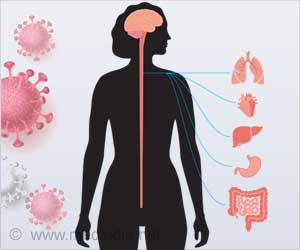The ‘long colds’ that develop after acute respiratory infections resemble the ‘long colds’ caused by COVID-19 infection in length and intensity.

Long-term symptom profiles after COVID-19 vs other acute respiratory infections: an analysis of data from the COVIDENCE UK study
Go to source) Long COVID causes ‘long cold’ symptoms that include coughing, stomach pain, and diarrhea more than 4 weeks after the initial infection. However, non-COVID acute respiratory infections such as colds, influenza, or pneumonia also experience such long-term symptoms. The findings suggest that there may be long-lasting health impacts following non-COVID acute respiratory infections that are currently going unrecognized.
Long Colds in Acute Respiratory Infections Mimic Long COVID
The research compared the prevalence and severity of long-term symptoms after an episode of COVID-19 vs. an episode of another acute respiratory infection that tested negative for COVID-19. Those recovering from COVID-19 were more likely to experience light-headedness or dizziness and problems with taste and smell compared to those who had a non-COVID-19 respiratory infection.‘Comparing and analyzing the ‘long colds’ of COVID-19 and other acute respiratory infections is important for improving treatment options. #longcolds #covid #respiratoryhealth’





While long COVID is now a recognized condition, there have been few studies comparing long-term symptoms following SARS-CoV-2 coronavirus infection vs. other respiratory infections.The study is the latest output from COVIDENCE UK, Queen Mary University of London’s national study of COVID-19, launched back in 2020 and still in follow-up, with over 19,000 participants enrolled. This study analyzed data from 10,171 UK adults, with responses collected via questionnaires and statistical analysis carried out to identify symptom clusters.
Giulia Vivaldi, a researcher on COVIDENCE UK from the Queen Mary University of London and the lead author of the study said: “Our findings shine a light not only on the impact of long COVID on people’s lives but also other respiratory infections. A lack of awareness—or even the lack of a common term —prevents both reporting and diagnosis of these conditions.
“As research into long COVID continues, we need to take the opportunity to investigate and consider the lasting effects of other acute respiratory infections. These ‘long’ infections are so difficult to diagnose and treat, primarily because of a lack of diagnostic tests and there are so many possible symptoms. There have been more than 200 investigated for long COVID alone.”
Professor Adrian Martineau, Chief Investigator of COVIDENCE UK and Clinical Professor of Respiratory Infection and Immunity at Queen Mary University of London, said: “Our findings may chime with the experience of people who have struggled with prolonged symptoms after having a respiratory infection despite testing negative for COVID-19 on a nose or throat swab.
Advertisement
- Long-term symptom profiles after COVID-19 vs other acute respiratory infections: an analysis of data from the COVIDENCE UK study - (https://www.thelancet.com/journals/eclinm/article/PIIS2589-5370(23)00428-5/fulltext)














